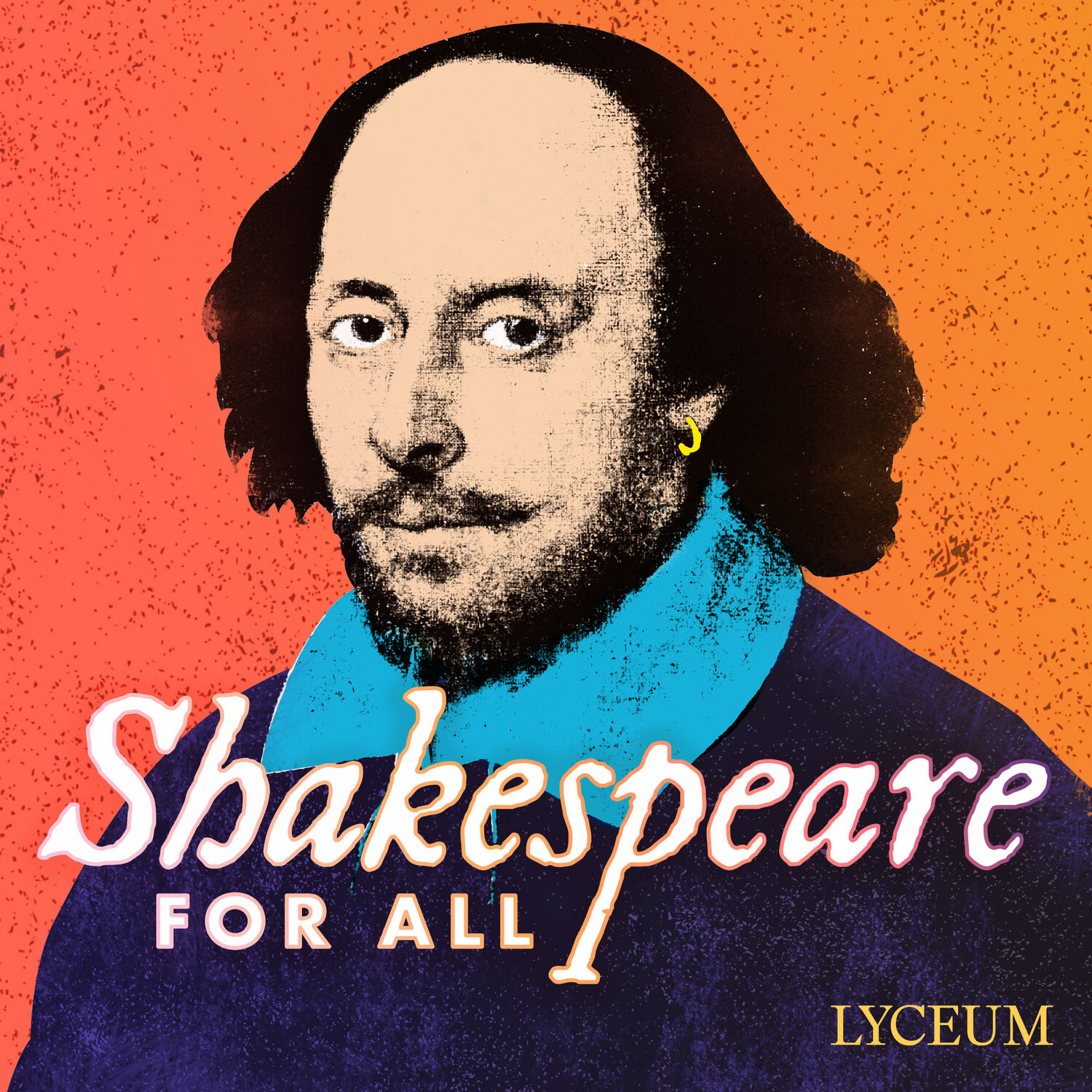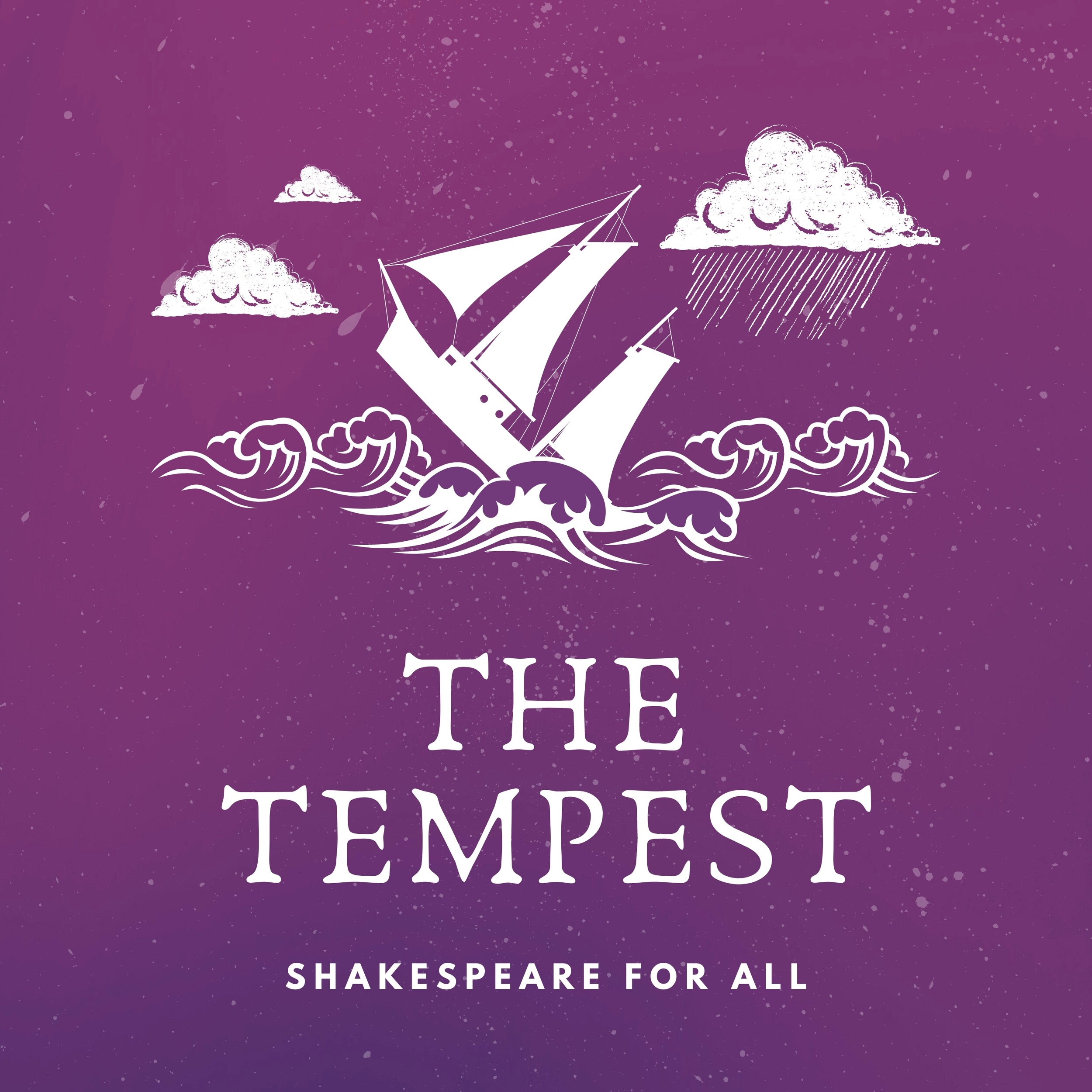The Tempest
“WERE I HUMAN”
What You'll Learn
The story of The Tempest and the key historical context behind the play
How the play reflects contemporary “New World” exploration and colonization, especially through the figure of the enslaved Caliban
How the play raises deep political and moral questions through the ambiguous figure of Prospero
Course Outline
Episode 1: The Tempest - the Story and the Context
Episode 2: The Tempest - the Characters and the Questions
Episode 3: The Tempest - the Language
Works Consulted for this Course
Garber, Marjorie B. Shakespeare After All. New York: Pantheon Books, 2004.
Greenblatt, Stephen. “Introduction,” The Tempest, in Shakespeare, William. The Norton Shakespeare. Edited by Stephen Greenblatt, Walter Cohen, Suzanne Gossett, Jean E. Howard, Katharine Eisaman Maus and Gordon McMullan. 3rd ed. New York: W. W. Norton & Company, 2016.
Hall, Kim F. Things of Darkness: Economies of Race and Gender in Early Modern England. Ithaca: Cornell University Press, 1995.
Loomba, Ania, and Martin Orkin, eds. Post-Colonial Shakespeares. New York: Routledge, 2004 (first published 1998).
Loomba, Ania. Gender, Race, Renaissance Drama. New York: Manchester University Press, 1989.
Mowat, Barbara A. “The Tempest: A Modern Perspective.” Folger Shakespeare Library. <https://shakespeare.folger.edu/shakespeares-works/the-tempest/the-tempest-a-modern-perspective/>
Smith, Emma. This Is Shakespeare. New York: Pantheon Books, 2020.
“Ovid’s Metamorphoses.” British Library. <https://www.bl.uk/collection-items/ovids-metamorphoses>
Shakespeare, William. The Tempest. Edited by Jonathan Bate and Eric Rasmussen. The RSC Shakespeare. New York: Random House Publishing Group, 2008.
Shakespeare, William. The Tempest. Edited by Virginia Mason Vaughan and Alden T. Vaughan. The Arden Shakespeare. London: Bloomsbury Publishing Plc, 2011.
The Tempest, one of the last plays Shakespeare wrote, draws on themes and stories that fascinated him throughout his career while also taking his art form to unexpected new places. Set in the course of a single day on a magical island, the play focuses on a magician named Prospero who plots to punish the enemies who exiled him to the island 12 years ago — including his own brother. But will Prospero ultimately follow the route of the revenger like Hamlet? Will the warring brothers make peace, as in As You Like It? Or, as in Twelfth Night, will tempest and shipwreck set the characters on new pathways they didn’t predict? In this course, you’ll learn the story of The Tempest, hear the play’s key speeches performed and analyzed by world-class Shakespearean actors and literary scholars, and see how Shakespeare recreated old stories in the context of New World exploration and exploitation.
In Part 1, you’ll be guided through a detailed account of the story with commentary by Laurie Maguire, Professor of English Language and Literature at the University of Oxford. You’ll learn how the play reflects contemporary European encounters with Africa, North America, and Latin America (what Europeans called the “New World”), especially through the figure of Caliban: an earlier inhabitant of the island who is made Prospero’s slave. This summary is told using the language of the play itself, placing key quotations in context to help you understand where these lines come from and what they mean.
Part 2 explores the play’s many ambiguities — its uncertain geography, mental space, and genre — and how they reflect the play’s ethical ambiguities. Does Prospero contrast with or resemble the “foul witch” who was Caliban’s mother, or the brother who betrayed him for the sake of power? Is he a figure of spiritual regeneration or of colonization? We also look more closely at Prospero’s relationship with Caliban and with Ariel, another servant in bondage, who forces Prospero to look at his humanity in a new way.
Part 3 features close-readings of some of the play’s key speeches: Caliban’s extraordinarily lyrical description of the island; Prospero’s beautiful and disturbing evocation of theatre, and perhaps the world, coming to an end; and Prospero’s renunciation of his magic.
You can hear the third episode of this course for free below. For the full course, subscribe today on Himalaya Learning. Use the promo code SHAKESPEARE for 14 days free.
Speeches and Performers
Caliban, 3.2, “Be not afeard …” (Kelly Hunter, MBE)
Prospero, 4.1, “Be cheerful, sir. Our revels now are ended …” (Anton Lesser)
Prospero, 5.1, “You elves of hills …” (Dame Harriet Walter)
Course Instructor
Laurie Maguire
Professor of English Language and Literature, University of Oxford
Laurie Maguire is Professor of English Language and Literature at Magdalen College at the University of Oxford. Her research encompasses textual studies, editing, Elizabethan performance, classical influences on Renaissance writers, contemporary performances of Shakespeare’s plays, and feminist criticism. Professor Maguire specializes in Shakespeare, but her dramatic interests range from ancient Greece to contemporary theatre. From 2006-08, she held a Leverhulme Trust Major Research Fellowship to complete her book, Helen of Troy: From Homer to Hollywood (Wiley-Blackwell, 2009). Professor Maguire is the author and editor of numerous articles and books written for both academic and popular audiences, including The Rhetoric of the Book (Oxford, 2020), 30 Great Myths about Shakespeare (with Emma Smith, Blackwell, 2012), Shakespeare’s Names (Oxford, 2007), and Where There's A Will There's A Way, Or, All I Really Need to Know I Learned from Shakespeare (Penguin, 2006), a book that shows how the dilemmas illustrated in Shakespeare’s plays can help readers explore their own emotions and judgments.



